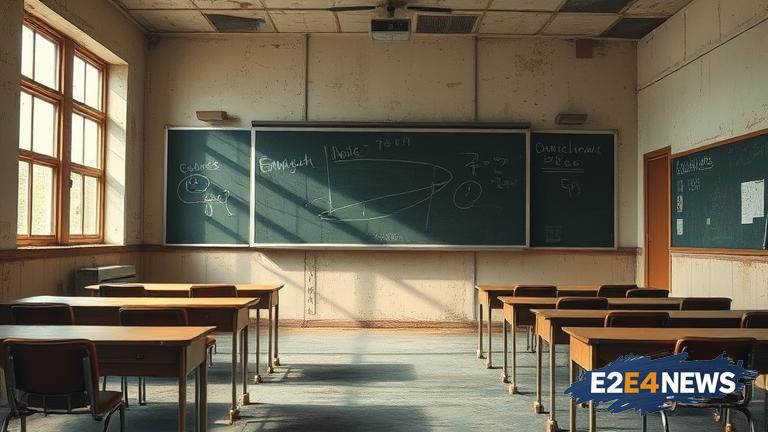The education system has undergone a significant transformation in recent years, with a growing emphasis on standardized testing and rote memorization. This shift has led to a decline in the quality of education, as students are no longer encouraged to think critically or explore their creativity. The traditional classroom setting, once a hub of intellectual curiosity and discovery, has become a hollow ritual, where students merely go through the motions of learning without any real engagement or passion. The consequences of this trend are far-reaching, with students graduating without the skills or knowledge necessary to succeed in an increasingly complex and competitive world. Furthermore, the lack of emphasis on critical thinking and problem-solving has resulted in a generation of students who are ill-equipped to navigate the challenges of the 21st century. The education system’s focus on standardized testing has also led to a culture of teaching to the test, where instructors prioritize covering material that will be on the exam rather than fostering a deeper understanding of the subject matter. This approach has resulted in a narrow and superficial education, where students are not encouraged to explore their interests or pursue their passions. In addition, the rise of technology has also played a role in the erosion of education, as students are increasingly reliant on digital tools and resources that can provide instant answers and solutions. While technology has the potential to enhance the learning experience, it can also be a hindrance, as students become too reliant on it and fail to develop the critical thinking and problem-solving skills that are essential for success. The decline of education has also had a profound impact on society, as a lack of educated and informed citizens can have far-reaching consequences for democracy and civic engagement. Moreover, the education system’s failure to provide students with the skills and knowledge necessary to succeed has resulted in a lack of social mobility, as those from disadvantaged backgrounds are often unable to access the same opportunities as their more affluent peers. The situation is further complicated by the fact that many educators and policymakers are unaware of the extent of the problem, or are unwilling to acknowledge the need for change. However, there are still many educators and experts who are working to reform the education system and provide students with a more meaningful and engaging learning experience. These efforts include a focus on project-based learning, where students are encouraged to work on real-world projects that require critical thinking and problem-solving. Other approaches include a emphasis on STEM education, as well as programs that promote social-emotional learning and character development. Ultimately, the key to reversing the decline of education is to prioritize a more holistic and well-rounded approach to learning, one that emphasizes critical thinking, creativity, and intellectual curiosity. By doing so, we can ensure that students are equipped with the skills and knowledge necessary to succeed in an increasingly complex and competitive world.
